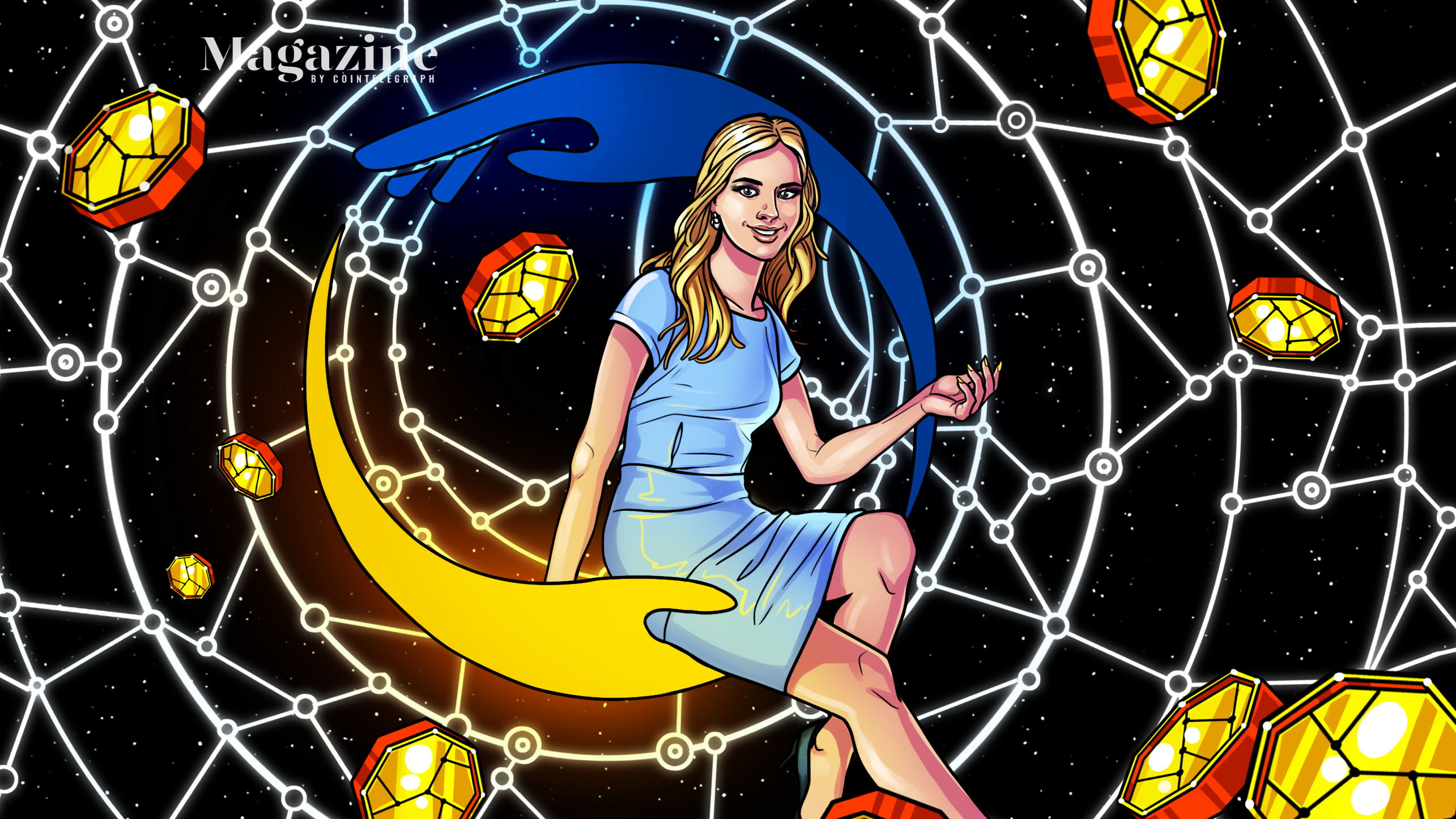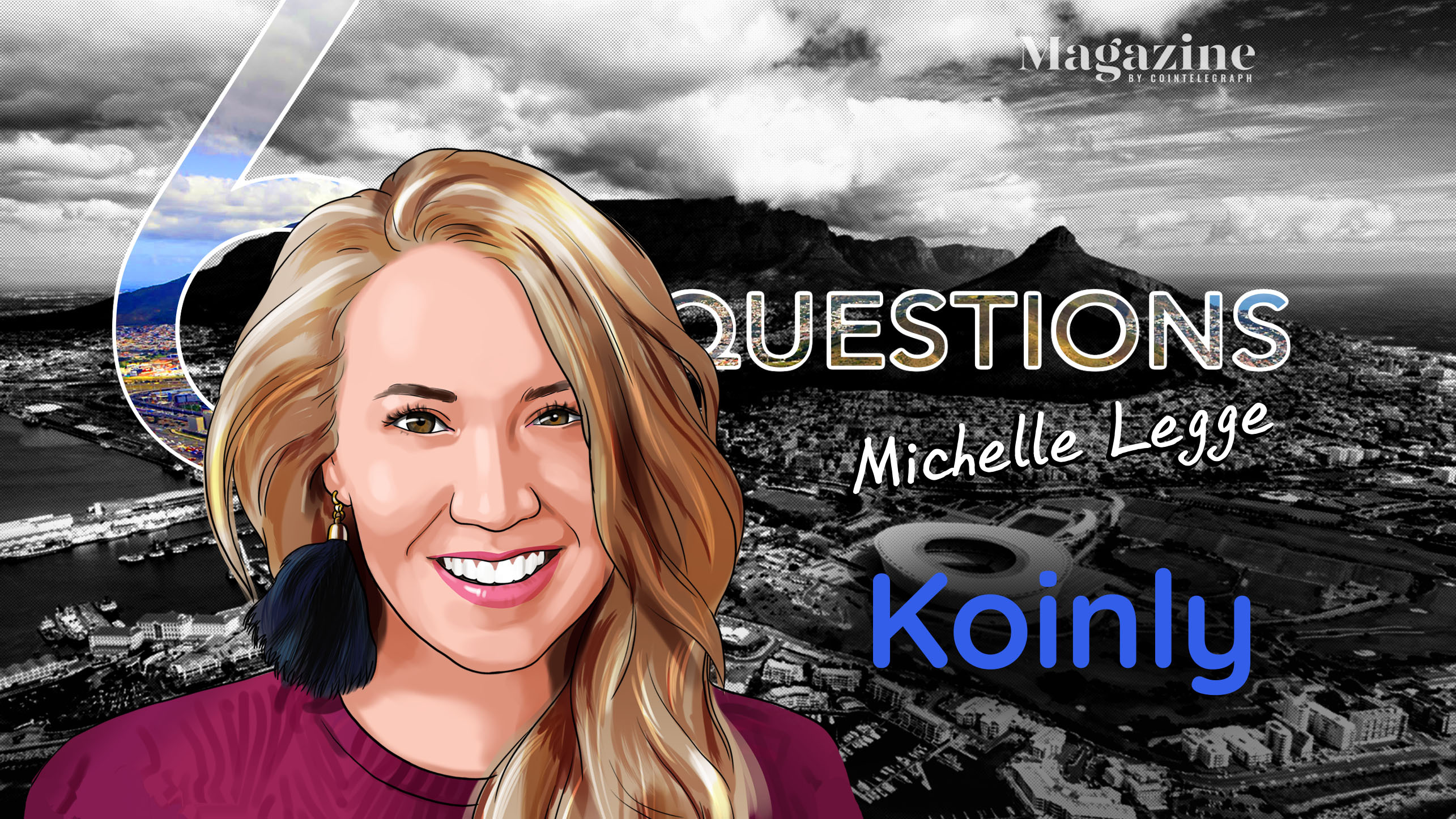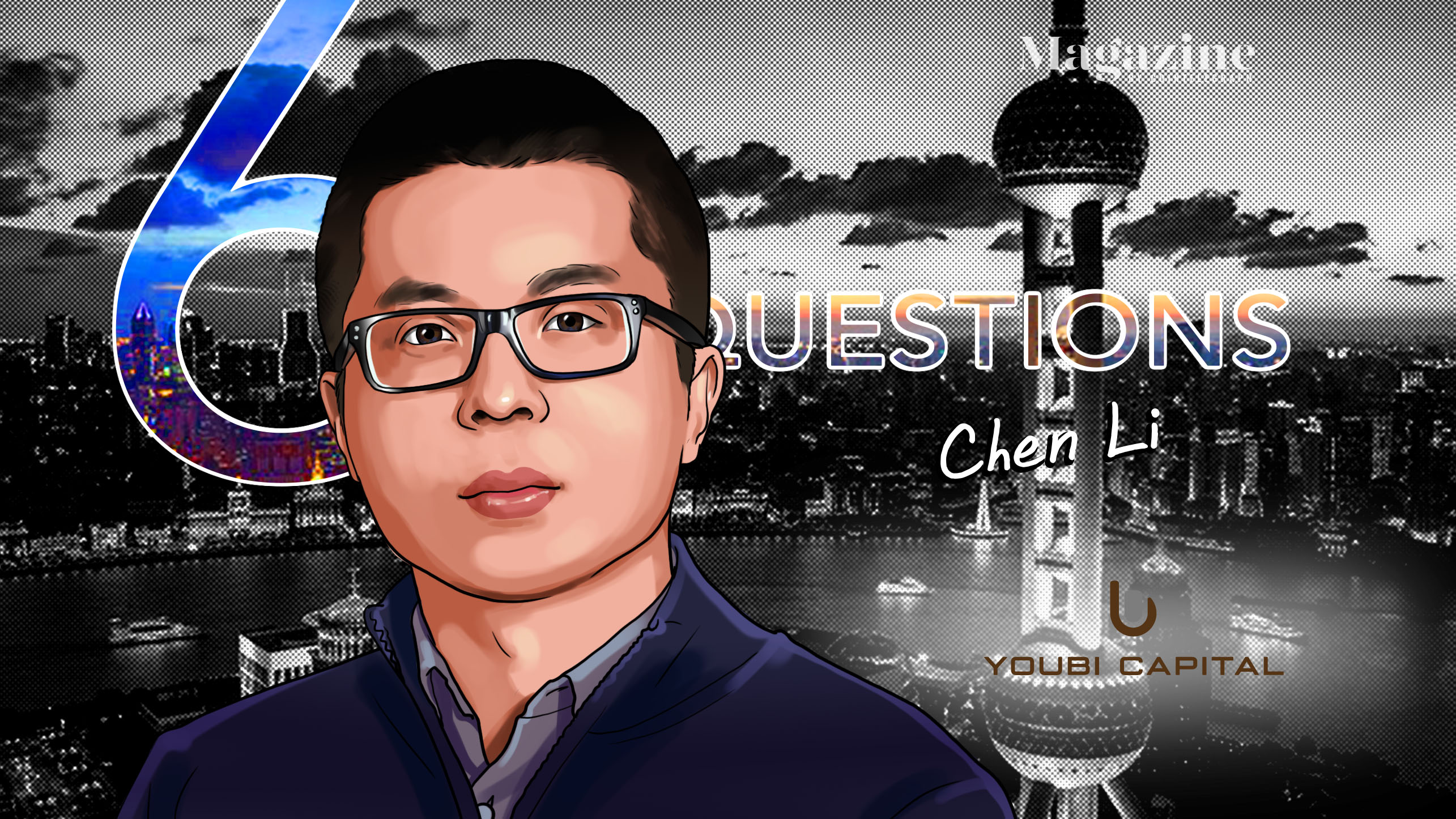
We ask the buidlers in the blockchain and cryptocurrency sector for their thoughts on the industry… and throw in a few random zingers to keep them on their toes!
This week, our 6 Questions go to Lili Zhao, director of ecosystem growth at Neo an open-source blockchain development platform.
The A to Z of Lili Zhao:
Authenticity easier said than done
Blockchain advocate
Community Neo has the best!
DAO fascinating!
Economics interests me much more now than when I was studying it at university
Falling never afraid of it because I always bounce back
Game life is a game, so lets play
Hot N3 is hot
Ideas too many ideas, not enough focus
Job growing the ecosystem of the Neo blockchain by profession and passion
Key keep your private key safe
Love may everyone be blessed with it
Minimalist a chaotic minimalist wannabe
Neo an open network for the smart economy
Open source love it
Polaris Neo hackathon, register now
Qi breath, energy and flow
Raison detre if you found it, tell me how?
Spicy food cant live without it for more than a week!
Twitter @Lili_Zurich
Unique all of us are
Vegetarian 90% of the time, I am one
Wallet get a NEO wallet on our website
X do you have a word suggestion?
Yield a stable NEO/GAS yield
Zurich-based, zest for life!
1 Does it matter if we ever figure out who Satoshi really is or was? Why, or why not?
It doesnt matter at all! The technology Satoshi created and its legacy has lived on and will continue to live on. One of the main appeals of the blockchain ecosystem is its community-driven spirit instead of being about personal glorification. Imagine if someone comes out and is indeed being confirmed as Satoshi Nakamoto. If that person deviates widely in terms of values and ethics from the ones envisioned by many, that may shatter some dreams and faith!
The anonymity of Satoshi has allowed people to have their own version of who they might or should be. The identity, or lack thereof, of Satoshi has been elevated into a Holy Grail that is to be pursued.
We say curiosity kills the cat and in this case, curiosity may kill Bitcoin! Let Satoshi remain as a legendary myth, and let us honor their creation, Bitcoin, by advancing it to mass adoption.
2 Which countries are doing the most to support blockchain, and which ones will be left behind?
There are quite a few countries that immediately come to peoples minds for those of us working in the blockchain space namely, Switzerland, Singapore, El Salvador, Portugal, the United Arab Emirates especially Dubai and more. However, in my opinion, the country that is doing the most to support the adoption of blockchain technology is actually China. It may surprise some people, as China has been known to ban Bitcoin mining and crypto trading. Let me explain why.
Chinas state-backed Blockchain-based Service Network is working on an interoperable blockchain infrastructure at both the national and international levels. As an open-source blockchain platform, Neo forms part of the permissionless blockchains from the international version of the BSN. The organization plans to support multiple future central bank digital currencies an initiative in which China is the undisputed champion.
At the national level, the BSN is integrating Neos Jiuquan Chain for the large-scale issuance of NFTs, or distributed digital certificates its alternative name as preferred by China. As stated by He Yifan, CEO of Red Date Technology the BSNs technology support provider NFTs in China will see annual output in the billions in the future. The use of the term digital certificate indicates that the technology could be used to digitize any asset and automate any paper-based process with smart contracts.
The mass adoption of blockchain technology can only come when the underlying infrastructure is built with it from the ground up. This is because it is a replacement rather than an upgrade to the existing legacy technology.
China is leading this digital transformation in building blockchain infrastructure and launching large-scale mainstream use cases. This will greatly advance the whole industry globally and, in the long term, benefit everyone.
3 Which is sillier: $500,000 Bitcoin or $0 Bitcoin? Why?
Bitcoin at $500,000 is sillier because Bitcoin at $0 is impossible!
Ten years ago, Bitcoin at $50,000 would have been thought of as silly. Today, it has become a norm, even though some question how sustainable it is. Bitcoin will never become zero because it has intrinsic value beyond its technological and monetary merits. In addition, it has become a domain of economics, philosophy and politics.
Value has been redefined in the smart economy underpinned by blockchain technology. The factors that make things valuable according to mainstream economic theories such as labor, costs of production, utility or even scarcity can no longer explain the rise of cryptocurrencies. Take the memecoin Dogecoin, for example: It has an infinite supply and ranks 12th on CoinMarketCap at the time of writing. Or is it because it has a God-like father figure advocate in Elon Musk?
Whatever the case, the point is that value has been fundamentally challenged. Anyone who envisages Bitcoin going down to zero is too attached to the traditional economic theories to recognize this paradigm shift. And silly can be the birthplace of innovation. So, be kind to silliness! (Silly emoticon here)
4 Whats the most interesting place youve ever visited, and why?
I would say the Canggu surf beach in Bali is the most interesting place I have visited. It tops my list not because of the exotic nature but more the feelings it evoked in me while I surfed there a sense of total freedom and flow! I am a rather spiritual person, so a place with only physical spectacles will delight or impress me; but to move me, it will need to evoke something deep.
However, despite my passion for surfing, I am actually pretty lousy at it. Haha! I do want to get better, but for me, its about the experience rather than being competitive. As someone who values experiences above all, this question is one that I hope I will have a different answer for every year.
5 What talent do you lack but wish you had? How would you use it if you had it?
I wish I could sing so I could use this talent to make some cool songs that will make people happy or bring some positive impact to their life. Our thoughts and emotions are often suppressed because words are inadequate to capture them. When they are properly captured by the linguistically blessed, they are poetry.
However, when they are linguistically captured and also musically conveyed, they are like food and cocktails for the soul both nourishing and tasty. A song with the right lyrics and melody can easily move me into a state of bliss, calm or melancholy.
Of course, there is also the possibility of becoming a commercial hit while doing what you love. Singing is one of the few talents that affords such an opportunity.
I would then tokenize all my songs on the Neo blockchain and receive and distribute royalty payments with full transparency. Here, the use case excites me more than being a commercial hit. I suppose I could already become a hit by singing now people would pay for me to shut up!
6 Who makes sense to you, and who makes no sense whatsoever?
When I was younger, I was much more opinionated and binary, so I could have given you a long list of who made sense and who didnt! Now, I am wiser. At least thats my sense of it. This may make no sense whatsoever to somebody who witnesses the silly things I still say and do at my not-so-tender age.
I am an existentialist. I believe that life has no inherent meaning apart from what each of us chooses to do that gives sense to it. There are three key qualities that I value and use to guide me in life: freedom (to do what I love), authenticity (to be who I am) and growth (a dynamic process evolving with new experiences).
I believe that everything that happens makes sense, even if it might appear senseless at the time of it happening. Navigating through nuance is the fundamental difference that separates us from artificial intelligence, which works best in binary.
A wish for the young, ambitious blockchain community:
No one would be asking for the elusive killer DApp if it were already here it would be everywhere!








































